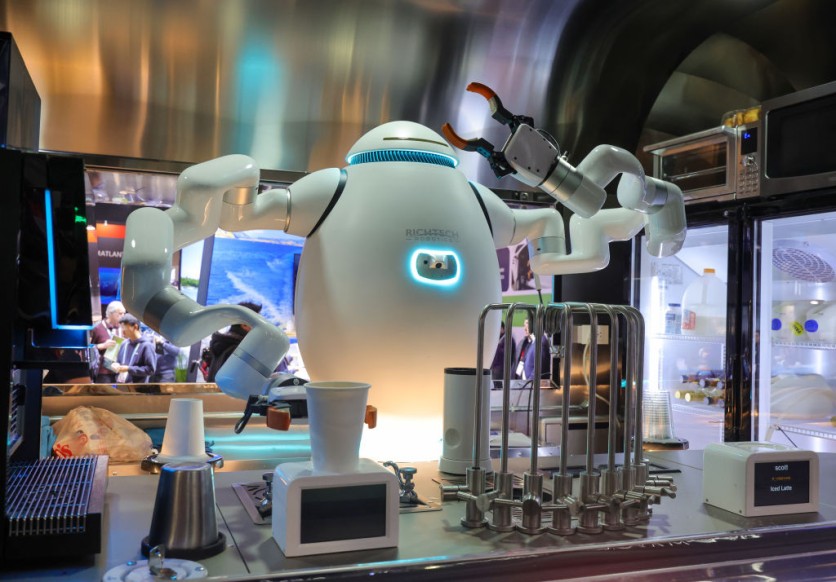CES 2024 in Las Vegas featured many robots, including a barista powered by artificial intelligence (AI) that could create beautiful latte art. These innovations impressed visitors, but Roman Alejo, a 34-year-old barista at the Sahara hotel-casino, raised worries about their influence on hospitality jobs. Alejo pondered the future of hospitality jobs in an AI-dominated world.
"A lot of AI is coming into this world. It is very scary and very eye-opening to see how humans can think of replacing other humans," he remarked, as reported by AP News.
This spotlight on AI's role in the workforce follows the recent labor dispute resolution in Las Vegas. The Culinary Workers Union, representing 40,000 members, concluded negotiations, emphasizing technology as a crucial issue. The union's secretary-treasurer, Ted Pappageorge, highlighted the significance of addressing the amalgamation of artificial intelligence and robotics.
Tech Innovations Challenge Human Workers
Experts suggest that advancements in AI technology compel labor unions to adapt their negotiation strategies, emphasizing increased deliberation for job security. Bill Werner, an associate professor at the University of Nevada, Las Vegas, stressed the need for unions to proactively address potential job transformations caused by technology.
The latest union contract reflects efforts to safeguard workers against the impacts of technology and AI. It includes provisions for $2,000 in severance pay per year of service if a job is eliminated due to technology or AI. Workers also have the option to explore opportunities in different departments within the company.

The CES 2024 trade show served as a platform for unions to assess emerging technologies that might challenge casino jobs. Among the showcased innovations were friendly robots for deliveries, robotic masseuses, and AI-powered devices capable of preparing and serving various items. While these advancements offer exciting possibilities, they raise questions about the evolving role of technology in the hospitality industry and its potential implications for the workforce.
Robots Will Not Replace Human Workers in the Casino Industry-- For Now
Meng Wang, co-founder of food tech startup Artly Coffee, reassures that his robot baristas aim to address the labor shortage in the service industry rather than replace jobs, per a report from ABC News. Highlighting the challenging nature of barista roles, labor-intensive with long hours and modest pay, Wang emphasizes Artly's goal of meeting market demands and expanding access to specialty coffee.
However, Bill Werner, an associate professor in the University of Nevada, Las Vegas hospitality department, expresses concerns about AI impacting casino union jobs that lack direct customer interaction, such as housekeeping and food preparation. He said automation risks lessen when customer service is not a focus, adding that Las Vegas, a popular tourist attraction, is great for testing technological innovations and customers' responses to them.
Meanwhile, the Culinary Union, where Alejo is a member, recognizes the hospitality industry's dynamic character and applauds outstanding advances due to AI but worries about technology's growing use.
Aside from robot baristas, CES 2024 showcased AI-powered household stuff like vacuum cleaners, washing machines, and even pillows, as per a report from the BBC. However, distinguishing between advanced AI models and everyday products claiming AI capabilities remains challenging. The lack of a uniform definition makes AI ambiguous, causing the FTC to warn against deceptive AI claims. In the hype, some firms emphasize openness and admit the term's ambiguity.

ⓒ 2026 TECHTIMES.com All rights reserved. Do not reproduce without permission.




